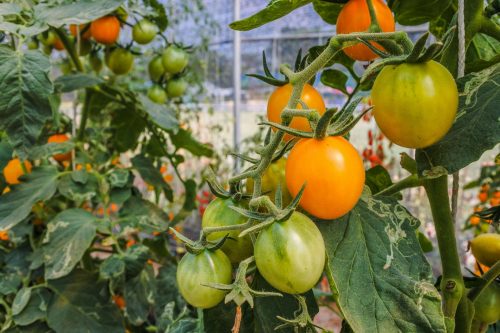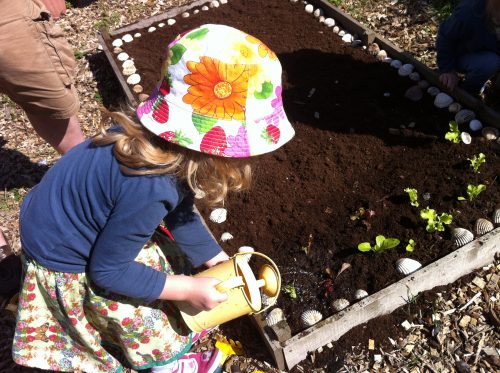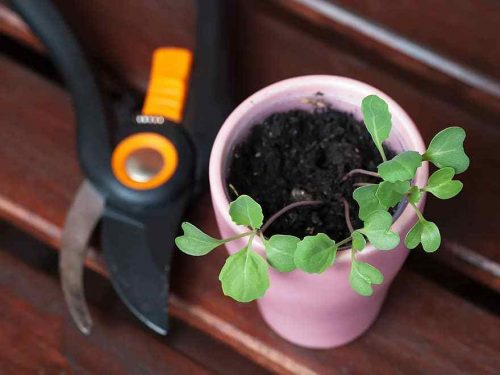
The COVID-19 pandemic has led us to a “new normal” of practicing physical distancing. As work shifts to remote set-up and children’s education to homeschooling, parents have more time to spend with their kids. That’s why it is now an excellent time to introduce them to new hobbies that they can turn into habits.
If you have an empty plot in your yard or an extra space in your balcony, you can practice home gardening. This activity is an excellent way to keep children occupied while learning something new.
Furthermore, gardening is therapeutic and can provide us emotional comfort amidst the situation that we are all facing. It has a natural calming effect that is beneficial to both physical and mental well-being.
Gardening For Children

Gardening allows children to learn essential life skills that they don’t often teach at school. It is also a hands-on way to teach about environmental awareness and nature exploring.
As Tchiki Davis, Ph.D. explains, “Getting in nature and under trees can lower cortisol (the stress hormone), lower blood pressure, and boost parasympathetic activity (the rest and digest system).”
Here are other knowledge skills that children can develop through planting and gardening:
- Understanding cause and effect in the process of planting
- Responsibility when caring for plants
- Creativity in finding ways to grow food
- Physical activity and productivity
- Knowledge about food and nutrition
- Self-confidence from successfully growing a plant
- Love for nature
Tips For Gardening With Children
If you want to make your quarantine period productive for your kids, this is the right time to introduce gardening! Here are some tips on how you can engage them with the act:
- Provide A Personal Garden Bed
Give your child a sense of ownership by giving them their separate garden bed. It encourages them to have a sense of responsibility and boost their confidence at the same time. Try to keep it small and make sure that it is the right spot to plant.
A productive garden bed must have access to good soil and sunlight, and it should be free of weeds and tree roots. You can use containers, pots, ground plots, or raised beds to plant on. If the growing condition is not ideal, it may be better to relocate it.
- Keep Them Involved
Make sure to keep them involved in the entirety of the gardening project. Children learn best when they understand the reason and context behind the activity. Let them do the preparation, the planting, and the harvesting of their crop.
Keep them engaged by letting them decide on what to plant and ask them for their opinion. And always keep them updated with the progress of the project. By doing this, children will learn that gardening is a fun activity that contributes to sustainability.
- Start From The Seeds
By starting with a seed, children will be a part of its growing process. This part is a highly valuable experience for young children, and it boosts their self-esteem and sense of responsibility. Usually, you can start to plant seeds indoors, and once they sprout, you can transplant them into pots and garden beds.
- Help Behind The Scenes
Depending on your child’s age, they may need some help with the gardening task. You can do these while they are not looking, since they may not be up for the job all the time. As much as possible, try to maintain their sense of ownership of the plot.
- Give The Right Tools
To make it more realistic, let them use tools that are necessary for the activity. Plastic materials can break easily and frustrate young kids. You can try sawing the handle of huge garden tools like hoe and spade to match their height. It would be best if you can find gardening tools that are especially for children.
- Show Off Their Work
Give them praise and reward during and after the gardening activity. Take a photo of their garden bed and send it to their friends or their grandparents. Giving them and their work attention can motivate them to continue the project or even come up with new ones.
Conclusion

As families have more and more time at home, there are many ways to keep children engaged and productive. When starting your gardening journey, it is vital to have a variety of resources to get you started.
It is a guaranteed way for kids to learn new things and have fun while being isolated. It is also an opportunity to have a breath of fresh air from all the stress and anxiety around.
